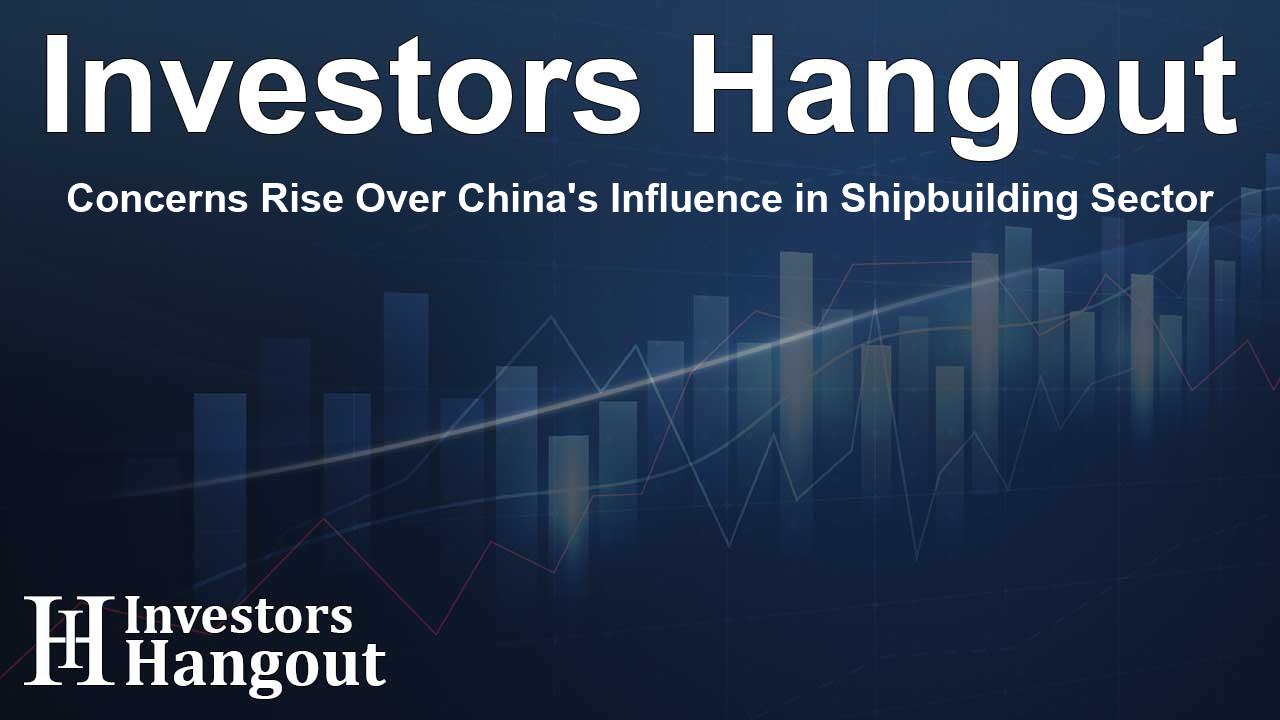Concerns Rise Over China's Influence in Shipbuilding Sector

Concerns Over China's Shipbuilding Sector
In recent discussions, the U.S. Trade Representative has raised significant concerns about the dominance of China in the shipbuilding sector. They have stated this dominance creates difficulties for U.S. commerce, labeling the situation as "unreasonable and burdensome." These statements underline the growing apprehension among U.S. officials regarding the influence of Chinese companies in maritime logistics and shipbuilding.
Impact on U.S. Commerce
The implications of China's maritime capabilities are far-reaching. With China's government having substantial control over its shipbuilding sector, it poses challenges for global trade dynamics. The U.S. Trade Representative has emphasized that the current state of affairs restricts American businesses from competing fairly in the market.
The Need for Responsive Action
While the Trade Representative did not provide clear recommendations for immediate actions, it is evident that a mechanism for potential responses is under consideration. This contemplation reflects a desire to ensure that U.S. businesses can operate on a level playing field.
Broader Trade Implications
The discussion surrounding this issue aligns with broader trade tensions between the U.S. and China. As global supply chains become increasingly interconnected, the impact of China's actions may trigger further evaluations of trade regulations and tariffs. Hence, American exporters are closely monitoring developments in the shipbuilding sector.
The Future of U.S.-China Maritime Relations
The future of maritime relations between the U.S. and China remains uncertain. Stakeholders are keenly aware that any escalation in trade measures could further strain relations. As the U.S. considers its options, the implications for both countries’ economies are substantial.
Potential Outcomes
Any responsive measures might include increased tariffs on Chinese-made ships or stricter regulations on materials related to shipbuilding. Such actions could affect not just trade but also partnerships that have formed over years in the maritime industry.
Conclusion
In conclusion, the increasing scrutiny of China's shipbuilding capabilities signifies a crucial moment for U.S.-China trade relations. The actions taken or recommended by the U.S. Trade Representative will be vital for maintaining the competitiveness of American industries in the evolving global market.
Frequently Asked Questions
What did the U.S. Trade Representative say about China's shipping industry?
The U.S. Trade Representative expressed concerns about China's dominance in shipbuilding, stating it burdens American commerce.
Are there any proposed actions against China's maritime sector?
Currently, there are no specific recommendations, but responsive actions are being considered by USTR.
How does China's shipbuilding affect U.S. businesses?
China’s shipbuilding sector creates competitive advantages for them, making it harder for U.S. companies to compete.
What are the possible consequences of U.S. actions on the trade front?
Potential consequences include increased tariffs on Chinese goods and stricter trade regulations.
What does this mean for future U.S.-China relations?
The scrutiny of China’s maritime capabilities might lead to heightened tensions and impactful policy changes in trade relations.
About The Author
Contact Riley Hayes privately here. Or send an email with ATTN: Riley Hayes as the subject to contact@investorshangout.com.
About Investors Hangout
Investors Hangout is a leading online stock forum for financial discussion and learning, offering a wide range of free tools and resources. It draws in traders of all levels, who exchange market knowledge, investigate trading tactics, and keep an eye on industry developments in real time. Featuring financial articles, stock message boards, quotes, charts, company profiles, and live news updates. Through cooperative learning and a wealth of informational resources, it helps users from novices creating their first portfolios to experts honing their techniques. Join Investors Hangout today: https://investorshangout.com/
The content of this article is based on factual, publicly available information and does not represent legal, financial, or investment advice. Investors Hangout does not offer financial advice, and the author is not a licensed financial advisor. Consult a qualified advisor before making any financial or investment decisions based on this article. This article should not be considered advice to purchase, sell, or hold any securities or other investments. If any of the material provided here is inaccurate, please contact us for corrections.
